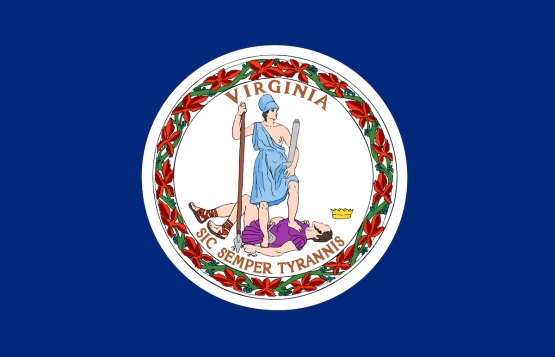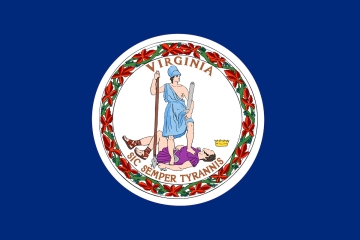Reviewing academic standards is the work for which our organization, the Thomas B. Fordham Institute, may be best known. In fact, in the first report we published, back in 1997, Sandra Stotsky addressed the quality of states’ English and language arts standards. And we’ve been periodically evaluating state standards in key subjects ever since—including but not limited to math, science, geography, and world history.
Because of our experience in this area, state departments of education and other state officials routinely reach out to us (and the content experts on whose know-how we rely) for input when their standards are up for review. After all, standards have to be periodically updated to reflect new developments in their respective fields—a process that typically occurs every five to ten years.
When its staff contacted us about proposed revisions to state-mandated history and social science standards in July 2022, the Virginia Department of Education had already embarked on this challenging but essential process.
In the ensuing months, multiple news reports have listed us among the organizations that provided feedback on early drafts of the standards. That is true, and we were glad to function in that capacity for Virginia as we’ve done for many other states over the years. But it’s also been implied by some that we tried to inject the draft standards with some form of conservative bias, even to “whitewash” history, and that is completely false.
My purpose here is to clarify our role and key recommendations, and to highlight which suggestions were ultimately integrated into the latest draft (mindful that such changes could have been suggested by multiple experts). Note that I’m comparing our initial feedback against the current (January 2023) draft on which Virginia has scheduled public comment and public hearings in the weeks to come.
Our role
In July 2022, Department staff let us know that they had read our report on The State of State Standards for Civics and U.S. History in 2021, in which our bipartisan group of civics and history experts assigned Virginia’s 2015 standards two B-plus grades (one for each subject). Although Virginia was one of just sixteen states that had received “honors” grades from our reviewers, Department staff wanted to hear more about how they could strengthen student expectations moving forward. So on August 1, my colleague David Griffith and I participated in a phone call with several staff members, during which they asked us for any additional feedback from our content experts not reflected in the published review. We didn’t recall any. They also shared some of the organizational challenges they faced as they contemplated combining the standards and curriculum frameworks. (The latter document is intended to “enrich and clarify the concepts” in the standards through suggested resources and student activities.) The decision to combine the two documents has since been reversed and they are now separate again, as in prior standards adoptions.
Staff were charged with integrating feedback from external experts, so we volunteered to give them input on the latest draft, which at that time was dated July 2022.[i] Subsequently, we asked two of the content experts who had co-authored our 2021 report to evaluate the proposed revisions.
We had another call with the Department’s staff on August 22, most of which again pertained to the organization and internal coherence of the (now separated) curriculum frameworks. Finally, on August 25, we compiled our reviewers’ feedback and sent it to the Department.
Contrary to reports that we submitted additional commentary on the “November” draft, that August 25 email was our last communication with the Department.
Our recommendations
What Fordham sent to the Department included general comments, while also detailing specific strengths and concerns for each early elementary grade (K–3) and each of the six higher-level courses with civics and/or U.S. history content (Virginia Studies, U.S. History to 1865, U.S. History 1865 to Present, Civics and Economics, Virginia and U.S. History, Virginia and U.S. Government).
Altogether, we sent approximately fourteen pages of comments. Because some of the reviewers’ suggestions were admittedly “nitpicky,” David and I bolded the suggestions that we felt were most important.
For example, a key weakness—which had been cited in our 2021 review of Virginia’s existing standards—was the failure to clarify the suggested sequence for U.S. history and civics content, which led our reviewers to complain that there was “no indication of the target age for the courses.” This problem remained in the July 2022 draft, hence our bolded recommendation to “Clearly articulate a suggested content sequence(s) for grades 4–12, as many other ‘local control’ states have done.” The latest January draft now addresses this concern, with pages 11–12 laying out a sensible sequence and progression to guide educators.
On a more specific note, our reviewers observed that the fourth grade Virginia Studies course made no mention of the Bill of Rights (nor had the existing standards), despite Virginia’s critical place in its history. That reference has now been added. We also recommended more coverage of the rule of law and the role of the courts, judges, and juries, all of which now appear in grade seven.
In the sixth-grade course, U.S. History 1865 to Present, reviewers noted the omission of the two Red Scare periods, in which heightened fears of communist influence led to the violation of Americans’ rights (both also missing in the 2015 standards). The post-World-War I Red Scare is now referenced, but the post-World War II Red Scare—also known as McCarthyism—is not. Similarly, our comments recommended reference to “growing social tensions over religious traditionalism in the 1920’s, as manifested in the Scopes trial,” in which the plaintiffs challenged a Tennessee law forbidding the teaching of evolution. That suggestion went unheeded.
In the grade seven Civics and Economics course, we and our reviewers favored more explicit reference to the Supremacy Clause and recommended that scattered content on the three branches of government “be reordered so all three branches of the federal government are bundled together”—both of which were also issues in the 2015 standards and have now been addressed.
Reviewers identified a significant omission in the eleventh grade Virginia and U.S. History course (also omitted in 2015). In their words: “The Dred Scott decision is not noted by name in any of the U.S. history course standards. Its enormous impact should at the least be mentioned here in what is (presumably) the high school course.” Reference to this Supreme Court case—which held that the Constitution did not extend American citizenship to individuals of Black African descent—has now been added to that course in a standard covering the development and abolition of slavery.
Our content experts also wrote that it was “surprising not to see the Electoral College or the primary system in the otherwise comprehensive Virginia and U.S. Government course” (also missing in 2015). Today’s draft now includes the requirement that students explain “the role of the Electoral College and the impact of reapportionment and redistricting on elections and governance.”
Reviewers thought, too, that parts of the twelfth grade course were “case law–poor” and recommended the addition of particular Supreme Court cases, including Obergefell v. Hodges 2015 (which required states to license and recognize same-sex marriage) and Reed v. Reed 1971 (which addressed discrimination based on gender). The former case is now included in an overarching standard addressing the “development of and changes in domestic policies” due to acts of Congress and Supreme Court decisions, including Brown v. Board of Education, Obergefell v. Hodges, Gideon v. Wainwright, Miranda v. Arizona, as well as Roe v. Wade and Dobbs v. Jackson Women’s Health Organization (the 2015 standards included only Brown v. Board of Education).
I could go on, but here’s the point: In our 2021 review of Virginia’s 2015 standards, we encouraged state officials to “Preserve the considerable strengths of the current standards in the forthcoming review process” and “Plug the specific gaps in coverage.” Virginia now appears to have done that (despite editorials to the contrary).
Yes, they made missteps and errors along the way. But make no mistake: This latest draft does not suffer from political bias. In fact, the Guiding Principles rightly allude to our nation’s complex history: “The events of our history demonstrate that people have incredible ability to inspire, innovate and improve lives, and this human story also shows that evil exists with the capability of destroying civilizations, communities, and individual lives.”
Nor do we see evidence of “whitewashing.” Virginia, for instance, is now one of only a few states that teaches fourth graders that the institution of slavery was the cause of the Civil War—not one of multiple causes (as was suggested in the 2015 standards). If I had my druthers, they would drop this sentence from the Implementation section of the Principles: “Teachers should engage students in age-appropriate ways that do not suggest students are responsible for historical wrongs based on immutable characteristics, such as race or ethnicity.” Although I certainly agree, in my opinion it unnecessarily douses gas on a partisan fire. But if that is as close as they get to politicization, so be it.
Writing thirteen school-years worth of accurate, balanced, rigorous, and age-appropriate academic standards that are aligned across grade levels isn’t for the faint of heart—especially in today’s outrage-fueled news cycle—which is why most states publish exceptionally vague civics and history standards that omit most content and paper over the sticky issues. That may keep them out of hot water, but it ill-serves their teachers and students.
Take Vermont’s requirement that fifth graders explain “how policies are developed to address public policy problems” or South Dakota’s requirement that eighth graders learn “how government decisions impact people, places and history.” No one could accuse the writers of these standards of bias, much less of omitting essential content: There is none to begin with.
To its credit, the Old Dominion took the road less traveled in 2015 and is doing so again in 2023. And when it comes to preparing the next generation of Virginians for thoughtful and informed citizenship, that will make all the difference.
[i] I suspect that the July 2022 draft was not substantively different from the “coupled” August draft—both of which combined the standards and curriculum frameworks prior to their subsequent “decoupling.” So it’s possible that our written comments on the July draft could just as easily have applied to the August draft, although we can’t say for certain.








